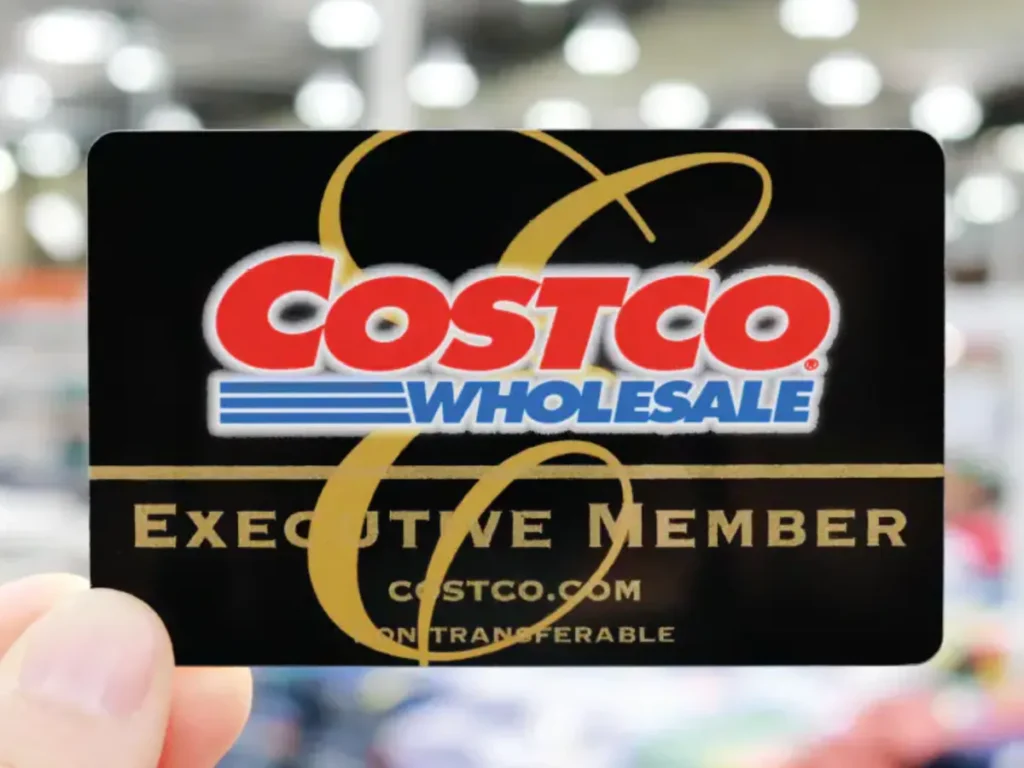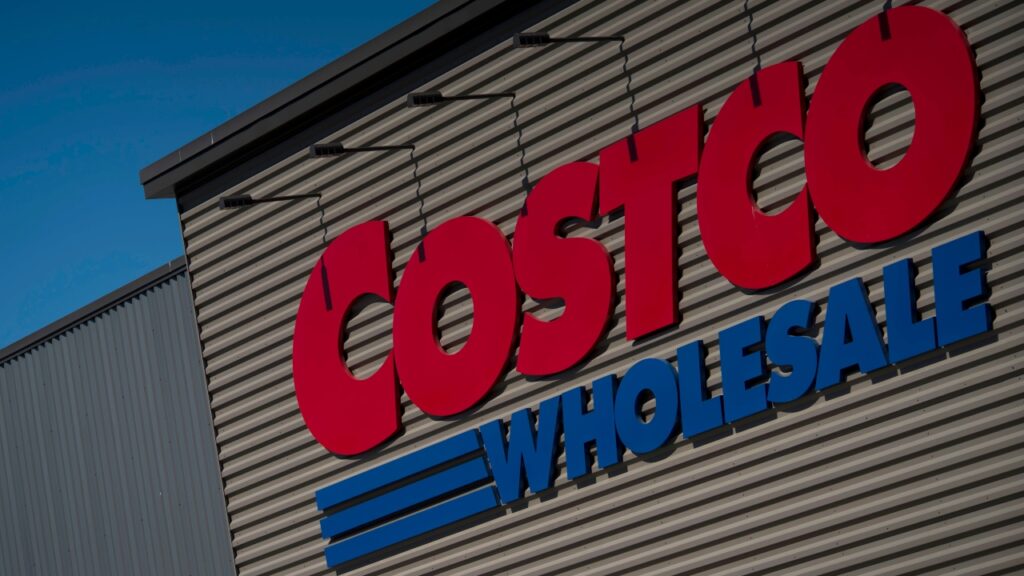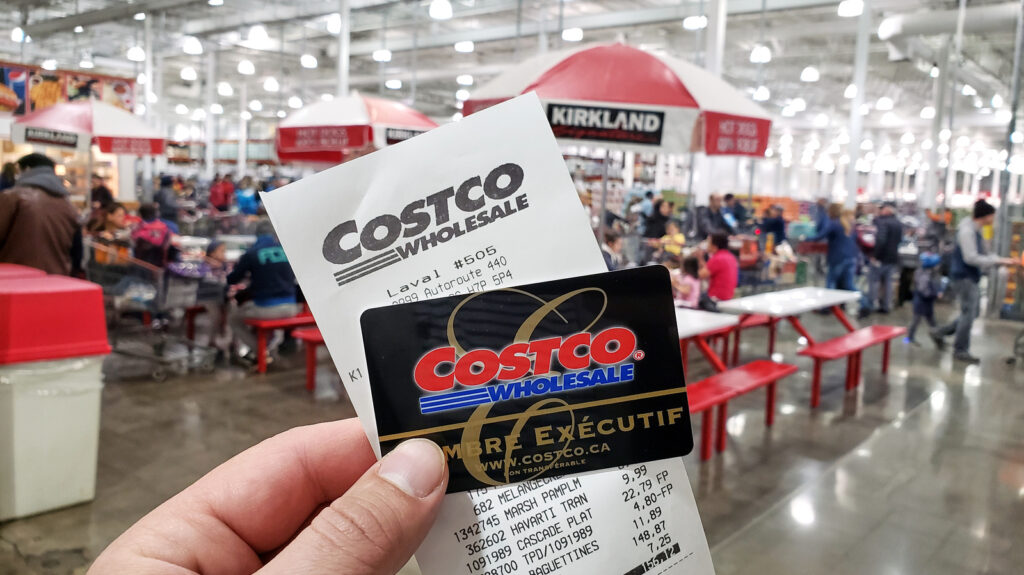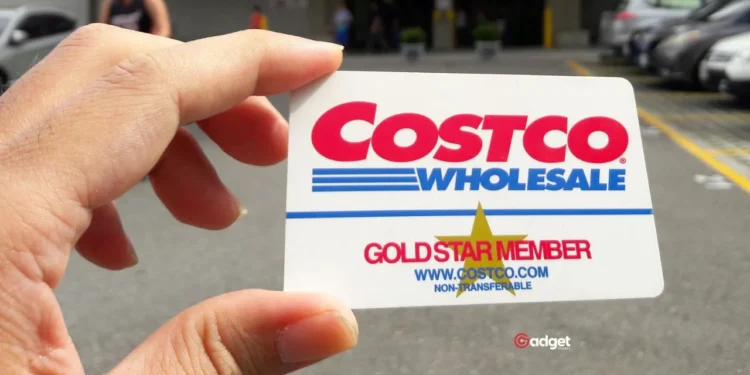Costco Wholesale shares experienced a slight dip in early Friday trading. Despite this, the bulk discount retailer is set to achieve a solid monthly gain, buoyed by a robust quarterly earnings report. Notably, this report highlighted significant revenue from big-ticket spending—a positive indicator in the current economic climate where shoppers are pivoting towards budget-friendly grocery and discretionary options due to sustained inflation.

Growth in Sales and E-Commerce
During the fiscal third quarter ending May 12, Costco reported net sales of $57.4 billion, marking a 9.1% increase from the same period last year. This growth was driven by unexpectedly high sales in discretionary items such as electronics and appliances. Additionally, the retailer noted an 8.9% increase in store traffic, surpassing that of competitors like Target and Walmart, with same-store sales climbing by a robust 6.5%.
E-commerce also saw impressive gains, with sales rising 21% on a like-for-like basis. Analysts attribute this surge to enhancements in marketing and delivery strategies. Costco’s bottom line similarly showed a significant uptick, improving 29% to $3.78 per share, well above Wall Street expectations. Gross profit margins also improved, reaching 10.8% relative to net sales.

Commitment to Value and Quality
Gary Millerchip, Costco’s new Chief Financial Officer, emphasized the importance of value and quality in today’s market. “We’re all reading a lot about the consumer, of course, and what they’re going through right now. And I think what we see is that value and quality has never been more important,” he commented during the earnings call. Millerchip’s insights reflect a deep understanding of consumer demands and the company’s consistent ability to meet these expectations effectively.
The Future of Membership Fees
A significant topic during the earnings discussion was Costco’s membership fees—a critical revenue stream for the retailer. These fees generated approximately $1.23 billion over the quarter, up 7.6% from the previous year. With around 134 million cardholders and about half of the 74.5 million households being Executive members, who pay higher annual fees for added benefits, the topic of fee adjustments is pertinent.

Historically, Costco has adjusted its membership fees every five years, but this pattern saw a pause since 2017. Millerchip, expressing satisfaction with the current membership-renewal rates, which hold strong at 93% in the U.S. and Canada, stated, “We look at what’s happened in the marketplace over the last few years and when we were seeing high inflation and the risk and concern around recession,” indicating a cautious approach to any immediate changes in fee structures. This strategic patience underscores a confidence in the ongoing business model’s success.
Market Analysts’ Reactions
D.A. Davidson analyst Michael Baker raised his price target for Costco to $780 a share following these revelations, noting, “Some may be disappointed as yet another quarter passes without a fee increase. But we see management’s point. If the model is working so well now, why do it?” This sentiment is widely echoed in the investor community, appreciating the prudent management style that prioritizes sustained growth and member satisfaction over short-term gains.
Costco: Tradition and Resilience
In an era of constant change, certain constants remain reassuring. Millerchip reaffirmed the permanence of Costco’s iconic $1.50 hot-dog-and-soda combo, a price point that has been steadfast since 1985. This declaration came amid rampant media speculation, ensuring members that some traditions are here to stay.
Despite the early trading dip, with shares falling 2.5% to $794.71, Costco’s stock is still up over 22% for the year, reflecting robust investor confidence in its business model and strategic direction.










